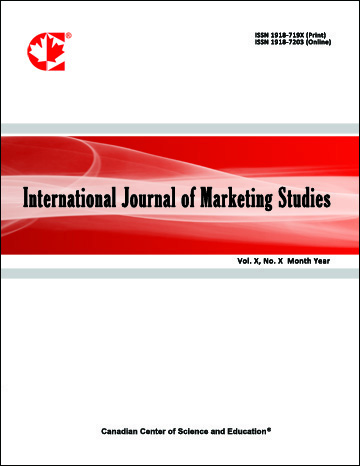Influences on Consumers' Recycling Intentions of Compact Fluorescent Lamps—Mercury as a Factor
- David Treumann
- Jonna Holland
Abstract
The purpose of the current study is to understand consumers’ behavioral intentions in situations involving both positive and negative potential impacts on the environment. The case of energy efficient Compact Fluorescent Lamps (CFLs) with their potential for mercury pollution is an example of this type of trade-off. Past studies have confirmed the usefulness of the Theory of Reasoned Action for identifying the antecedents influencing recycling rates, however, none have looked at situations where conflicting environmental trade-offs were involved. Stepwise regression analysis was used to develop a core model which explains R2=.561 of the intention to recycle. Significant antecedents include the peer group subjective norm of recycling CFLs (Beta=.661), the attitude towards recycling of CFLs (Beta=.417), the attitude towards the overall environmental friendliness of CFLs (Beta=-.344), and the attitude towards the number of sites available for recycling of CFLs (Beta=.212). Adding the impact of past recycling behavior increases the model’s explanatory power to .726. Important policy implications result from the finding that the number of people who would ‘always or usually’ recycle CFLs increased to 90% by enhancing the convenience of recycling. A significant managerial implication results from the contradictory findings that the attitude towards mercury is not significantly correlated with intentions to recycle, however the attitude towards the environmental friendliness of CFLs was negatively related to recycling intentions. This potentially indicates that there is a lack of understanding of the net positive impact of CFLs and there is potential confusion about the related environmental trade-offs. Recommendations for policy and marketing responses are suggested.- Full Text:
 PDF
PDF
- DOI:10.5539/ijms.v5n6p175
Journal Metrics
Google-based Impact Factor (2021): 1.34
h-index (July 2022): 70
i10-index (July 2022): 373
Index
- Academic Journals Database
- CNKI Scholar
- EconBiz
- Electronic Journals Library
- Excellence in Research for Australia (ERA)
- GETIT@YALE (Yale University Library)
- Harvard Library
- IBZ Online
- Infotrieve
- JournalTOCs
- LOCKSS
- MIAR
- PKP Open Archives Harvester
- RePEc
- ResearchGate
- ROAD
- Scilit
- SHERPA/RoMEO
- Stanford Libraries
- UCR Library
Contact
- Alyssa SunEditorial Assistant
- ijms@ccsenet.org
